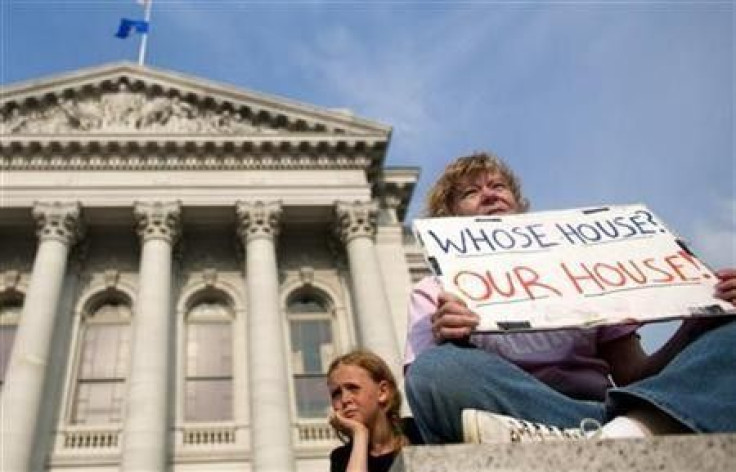Wisconsin Recalls: Republicans Claim Coup Heading into 2012 Elections

In Tuesday's recall elections, quite possibly the most contentious in Wisconsin history, Republicans managed to fend off the Democrats and barely hold onto their state Senate majority.
Four Republican incumbents successfully defended their seats while two fell, leaving the GOP with a one-vote majority, election officials reported.
Democrats needed to win at least three of the six seats up for grabs to take control of the Senate from Republicans.
The recall elections were seen as a referendum not only on Gov. Scott Walker's bitterly controversial labor law, but also on the Tea Party-infused wave of Republicans that swept into state and national offices in 2010. At a time when government spending and deficit reduction continue to consume Washington, the Wisconsin recall elections were closely watched as a gauge of public sentiment.
"The eyes of the nation are on Wisconsin right now," U.S. Rep. Tammy Baldin, D-Wis., said during a Monday conference call with liberal volunteers from across the country. "I don't think anyone will be surprised to hear that what is happening in Wisconsin is happening elsewhere too."
The last seat to stay in Republican hands was a suburban Milwaukee district where returns showed incumbent Alberta Darling defeating Democratic challenger Sandy Pasch, 54 to 46 percent, according to Wisconsinvote.org.
John Hogan, executive director of the Committee to Elect a Republican Senate, called the results a major win for Republicans.
"Voters gave us a mandate last fall," he told the Milwaukee Journal Sentinel. "They backed us up again (Tuesday). Voters told us loud and clear, 'Stay the course. Things are working.'"
The election battle was seen as a test of strength of Walker and his Tea Party supporters, especially considering Wisconsin is one of a handful of states that could prove pivotal in the 2012 presidential race.
The Republican National Committee has identified Wisconsin as one of 13 "battleground" states. Polling guru Nate Silver identified all six seats in Tuesday's recall election as swing districts that supported President Barack Obama in 2008 and Walker in 2010.
Arguing, too, that the Republican wins in his home state will have national implications going forward, Republican National Committee Chairman Reince Priebus said: "Wisconsin voters rejected the reckless spending of Wisconsin Democrats and the downgrade-inducing policies of their Washington counterparts. They have given their seal of approval to Republicans' successful efforts to balance the budget and ensure a healthy economy."
"While Gov. Scott Walker and Republicans in Wisconsin have put people back to work and turned deficits into surpluses, Big Labor and Democrats orchestrated a recall election for selfish political retribution," Priebus said. "Despite sending unprecedented amounts of outside money to influence the outcome, they were soundly defeated for the second time in nine months."
© Copyright IBTimes 2024. All rights reserved.











